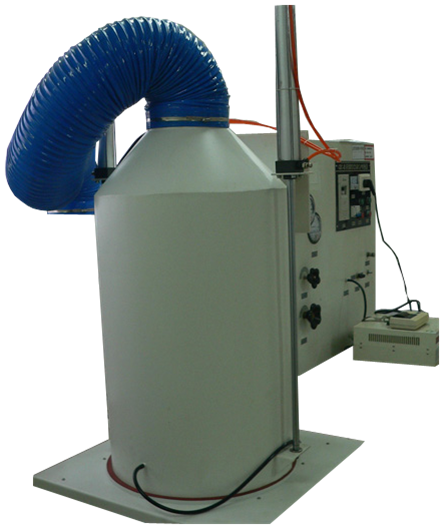
Optimizing Performance: The Essential Role of an Air Intake Filter Test System
2025/06/30
In countless industries, from automotive to HVAC, and from industrial machinery to cleanroom environments, air intake filters are the first line of defense. They protect vital equipment from particulate matter, ensuring efficient operation, prolonging lifespan, and maintaining air quality. But how do you truly know if your filters are performing optimally? The answer lies in precise and comprehensive testing of their resistance, flow rate, and, most critically, filtration efficiency.

Why Is Air Intake Filter Testing Critical?
An air intake filter might look simple, but its performance directly impacts system efficiency and longevity. Inadequate filtration can lead to:
Reduced Equipment Lifespan: Abrasive particles bypassing the filter can cause premature wear on sensitive components like engines, turbines, or electronics.
Decreased Operational Efficiency: Clogged filters increase resistance, forcing systems to work harder, consuming more energy, and reducing overall performance.
Compromised Product Quality (for cleanroom applications): Even tiny particles can contaminate sensitive manufacturing processes.
Increased Maintenance Costs: Frequent breakdowns and replacements due to poor filtration add up.
To avoid these pitfalls, a highly targeted field test facility is crucial. It provides the data needed to select the right filters, monitor their performance over time, and ensure compliance with air quality standards.
Key Components and Technical Excellence
Our Air Intake Filter Test System is meticulously configured with high-quality components to ensure accuracy and reliability:
DEHS Aerosol Generator: For consistent and repeatable dust source.
Laser Dust Particle Counters (x2): High-precision instruments (2.83 liters/min sampling rate) for accurate particle size and count measurements before and after the filter.
Variable Frequency Controller: For precise and adjustable airflow control.
Differential Pressure Gauges (x3): To accurately measure filter resistance.
Flow Meter (low flow) & Flow Nozzle (high flow): For comprehensive airflow measurement across different ranges.
High-Pressure Fan: To generate necessary airflow.
Pipeline High-Efficiency Air Filter: Ensures system cleanliness.
Pneumatic Special Fixture (1 pair): For secure and repeatable filter mounting.
Control Valves (x2): For system management.
Applications: Where Our System Makes a Difference
This Air Intake Filter Test System is invaluable for:
Filter Manufacturers: For R&D, quality control, and product certification.
Automotive Industry: Testing engine air filters, cabin air filters, and industrial intake filters.
HVAC Industry: Evaluating filters for commercial, industrial, and residential air conditioning systems.
Industrial Operations: Ensuring the performance of filters protecting machinery and processes.
Research & Development Facilities: For developing new filtration media and designs.
By providing accurate, real-time data on filter performance, our Air Intake Filter Test System empowers users to optimize filtration solutions, enhance equipment protection, and significantly improve overall operational efficiency.
Previous: The Critical Role of a Gas Hazardous Characteristics Tester in Flammable Gas
N e x t : Wyzenbeek wear test



